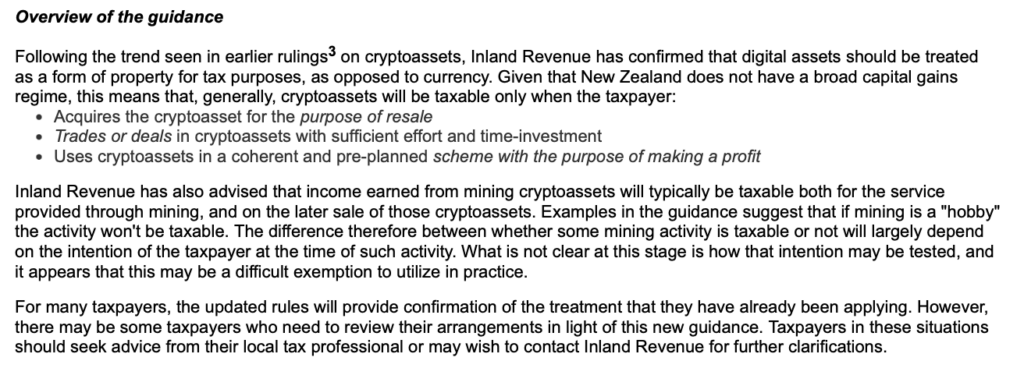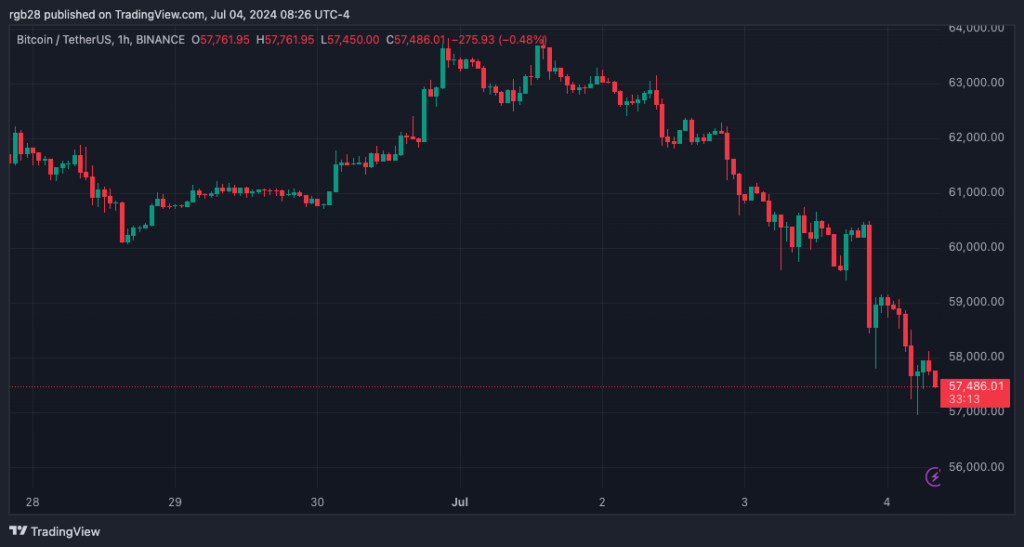New Zealand’s tax authority targets over 200,000 cryptocurrency traders for failing to report income, warning of increased enforcement and penalties.
More than 200,000 people in New Zealand should have disclosed their cryptocurrency income on their tax filings, according to the country’s tax officials. The watchdog stated it would take more aggressive steps to find those who do not declare their gains in digital assets and reminded people that virtual assets are taxed.
IRD Sends Crypto Taxpayers A Letter
The IRS said it focuses more on people who have not disclosed their cryptocurrency profits. Those who actively trade cryptocurrencies but have not declared their revenue on their tax returns will be the target of the tax authority.
New Zealand revised its regulations regarding the handling of digital assets in 2020. Since that time, according to the IRD, cryptocurrency profits have been considered property for tax reasons, meaning residents’ earnings from trading these assets are subject to taxes.
According to the revised regulations, there are situations in which digital assets and the money obtained from mining them are taxable.

With over 7 million transactions, the Tax Authority has identified over 227,000 distinct cryptocurrency users nationwide. The total estimated value of these trades is NZD 7.8 billion, or approximately $4.77 billion.
The report claims that the tax authority could identify clients who had yet to make their required tax payments thanks to the data they obtained. It has also helped the IRD locate users who have substantial assets.
As the market has expanded this year, IRD spokesman Trevor Jeffries believes that investors should declare and be able to pay the taxes on their profits:
Cryptoasset values have reached new highs, so now is a good time for people to think seriously about tax on their cryptoasset activity. The high value also means customers are well positioned to pay their tax for the 2024 tax year and earlier.
New Zealand Will Increase Its Compliance Initiatives
According to Jeffries, investors must contemplate their tax responsibilities and weigh the potential consequences of failing to disclose all associated taxable activity. He also emphasized that the authority has issued many recommendations about cryptocurrency taxes.
A handful of high-risk clients were alerted by the tax department last year, and they were allowed to resolve any non-compliance issues before being audited. Similarly, the IRD disclosed that it has begun sending fresh letters to cryptocurrency investors who still need to be informed of their income accurately.
Jeffries informed users that the IRD could identify taxpayers with digital assets and disclosed that the tax administration is “stepping up” its compliance efforts.
We want customers and tax agents to know that we are stepping up our compliance activities for customers with cryptoassets. Despite popular thinking – people are not invisible on Blockchain, and we have the tools and the analytics capabilities to identify and expose cryptoasset activities.
According to the IRD, it works with exchanges both domestically and internationally to get relevant data. The department is also collaborating with overseas tax authorities to obtain more information on its clients’ cryptocurrency holdings and transactions outside of New Zealand.
It is important to note that the nation’s laws about cryptocurrencies are still fundamental. The Reserve Bank of New Zealand (RBNZ) stated in a statement from the previous year that “heightened vigilance is needed, but a regulatory approach isn’t needed right now.”
Andrew Bayly, the Minister of Commerce and Consumer Affairs, believes the government should regulate the industry more actively.
Bayly recommended New Zealand adopt a more “proactive and innovation-friendly approach to digital assets and blockchain” in response to a legal committee’s investigation in April. According to the Minister, the government ought to encourage the expansion of the sector and consider the Inquiry’s suggestions.




